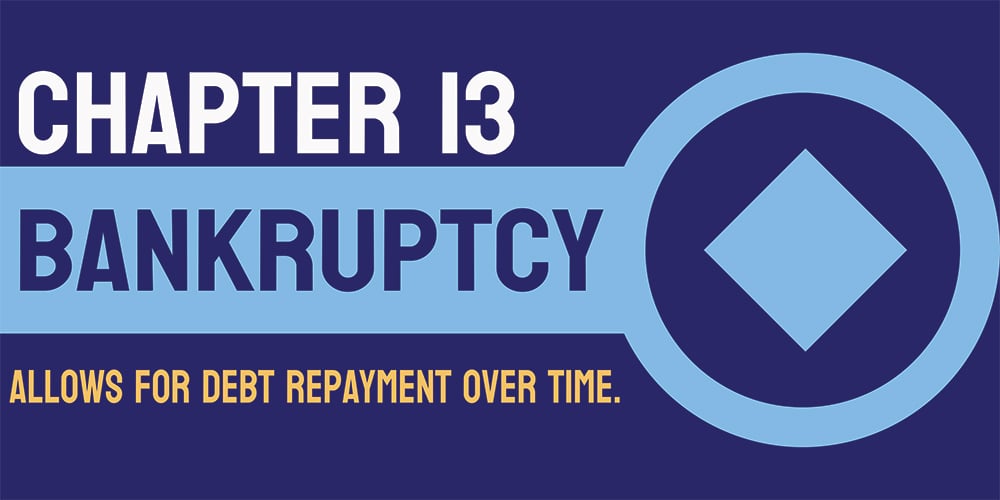Facing significant debt can be a frightening and overwhelming experience. Chapter 13 bankruptcy gives individuals who have a regular income the opportunity to reorganize their debts and repay them with a structured bankruptcy plan.
A common question we are asked when someone is thinking about filing a Chapter 13 bankruptcy is how much will their Chapter 13 plan payments be.
In this blog we will explore the factors that determine the amount of your Chapter 13 plan payments and give some insight into how it is calculated.
Understanding Chapter 13 Bankruptcy
Chapter 13 Bankruptcy is designed to help individuals who have a regular source of income (such as wages, pension, social security) but are struggling with overwhelming debt. Chapter 13 allows debtors to keep their property while creating a manageable repayment plan over a period of three to five year. For more information on Chapter 13 read our blog on “How Does a NJ Chapter 13 Bankruptcy Work.”
The Chapter 13 Bankruptcy Plan
At the time you file your bankruptcy petition, you must also file a Chapter 13 bankruptcy plan with the Bankruptcy Court. The Chapter 13 plan states how you intend to pay your creditors and how much they will be paid.
The Chapter 13 Plan requires that you make monthly payments to a Bankruptcy Trustee over a period of 3 to 5 years. Most creditors with unsecured debt (such as credit cards and medical bills) only get paid a small percentage, if anything, of what is owed to them.
How Long Will Your Bankruptcy Plan Last?
Chapter 13 Plans generally last between 36 months (3 years) to 60 months (5 years). The length of the plan depends upon whether your income is above or below your state’s medium income for your household size.
If your income is less than the state medium income for your household size, your plan can last for 3 years. Some people who are below the median income choose to stretch out their payments over 60 months to lessen the monthly payments.
If your household income is more than the median income for your household size, the plan can last up to 60 months. You can find the median income in your state on the website of the United States Trustee at https://www.justice.gov/ust/means-testing/20230515.
Factors That Influence Your Chapter 13 Plan Payment
Several key factors are involved in determining what your Chapter 13 payments will be. These include:
- Your Disposable Income: The foundation of your plan payment is your disposable income. This is the amount left over after deducting your reasonable living expenses and necessary payments such as for mortgage or rent, food, utilities and transportation costs from your monthly income. Your disposable income is deemed to be what you can afford to pay towards your debts. Standards set by the Internal Revenue Service are used for some categories of expenses.
- Priority Debts: Certain debts such as for tax obligations, child support and alimony are considered to be priority debts. Priority debts must be paid in full in your Chapter 13 Bankruptcy Plan.
- Secured Debts: If you have secured debts (such as a mortgage or a car loan), you must continue making your regular monthly payments to keep the asset. Any arrearages of secured debt (amount you are behind) can be included in your Plan payment.
- Non-exempt property: The value of your non-exempt property, which can be liquidated in a Chapter 7 bankruptcy, might affect the amount you need to pay to your unsecured creditors in your Chapter 13 Plan. The larger the value of the non-exempt property, the larger your plan payment will be.
- Length of your Plan: Your plan payment will be based on the length of your plan and the total amount of your debt.
How Is Your Chapter 13 Plan Payment Calculated?
Once you consider the above 5 factors, your Chapter 13 Plan is calculated in the following way:
Total value of Priority Debts + Arrearages on Secured Debts + Disposable Income + Non-exempt property value equals your total plan payment. This total amount is divided by 36 to 60 months to determine your monthly plan payments.
Consulting with an experienced bankruptcy attorney is critical to ensure that your Chapter 13 Bankruptcy Plan payment accurately reflects your financial situation and that you are getting the best possible terms.
Contact Levitt & Slafkes to Understand Chapter 13 Bankruptcy
If you’re facing financial difficulties and considering Chapter 13 bankruptcy, understanding how your plan payment is determined is important. This payment is tailored to your situation to ensure that you can manage your debts while keeping your important assets.
Consulting with a knowledgeable and compassionate bankruptcy lawyer, like those at Levitt and Slafkes, will help you navigate the complexities of Chapter 13 Bankruptcy and help you get a fresh start.
Contact our New Jersey law firm online by filling out the form or by calling 973-323-2953 to schedule a free initial consultation with an attorney at Levitt & Slafkes, P.C..
We are proudly designated as a debt relief agency by an Act of Congress. We have proudly assisted consumers in filing for Bankruptcy Relief for over 30 years. The information on this website and blogs is for general information purposes only. Nothing should be taken as legal advice for any individual case or situation.



